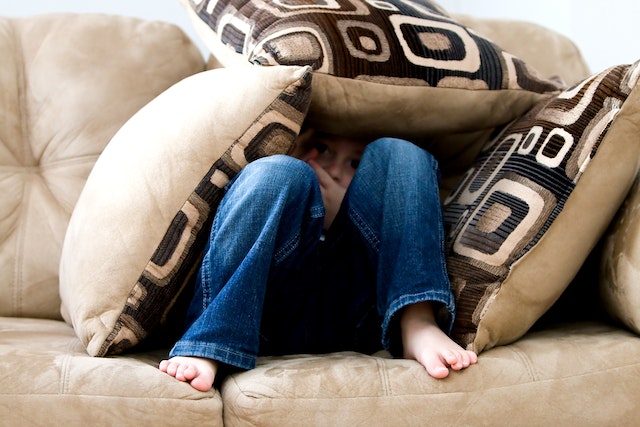
Anxiety is not often something we associate with childhood. Childhood is often seen as a magical time by adults who are either raising children or who are family members. In many ways, it is a magical time.
The more time passes, the harder it gets for adults to remember how challenging childhood can be. It’s especially hard to connect the emotions and behaviors of children to more serious problems such as anxiety.
There are many ways to treat anxiety, regardless of being a child or an adult. However, not every treatment method will be appropriate or effective for each individual case. When anxiety begins affecting a child’s life on a daily basis, it is most often met with a need for prescriptions to manage it. There is nothing wrong with needing to take medicine for anxiety. However, in most cases, experts such as doctors or therapists will not recommend a prescription treatment solely.
In many cases, Cognitive Behavioral Therapy (CBT) can be combined with medication or used on its own to help a child dealing with anxiety. Let’s explore the benefits of CBT and how it helps with anxiety.
How CBT Can Help Children Cope With Anxiety
Signs Of Anxiety In Children
Anxiety symptoms are essentially universal, regardless of the age of the person. However, anxiety may present itself differently for children and teens than it would for adults. Examples of adolescent symptoms of anxiety can include:
- Avoidance of anything that they fear, such as specific situations or activities. This is a basic coping method to make themselves feel better. However, as they continue to avoid the things that make them nervous, the fear becomes larger than life for them.
- Social isolation or withdrawal
- Consistently complaining of stomach aches, headaches, or muscle aches with no apparent cause
- Change of appetite
- Having difficulty staying or falling asleep
 How CBT Works
How CBT Works
CBT was founded on the principle that our emotions, thoughts, and behaviors are closely connected. There’s an intricate connection between how our thoughts impact our emotions and can then influence our thoughts negatively. If it sounds complicated and messy, it is. Tightening this complicated web is that our thoughts and emotions can impact our behavior. This is part of the reason why anxiety is such a challenging condition to deal with, not only for children but for adults as well.
With CBT, children are in a safe space to be exposed to their anxiety triggers. Exposure therapy, while it sounds scary, is actually very gentle. Working with a therapist, the child will identify the situations that cause them the most anxiety. In small steps, the therapist will mimic these situations and slowly expose them to them.
Over time, the exposure to whatever they are working to overcome will start to feel less scary and intimidating to the child. This is done through a scale system where the child ranks the amount of fear they have, with 1 being the lowest and 10 being the highest. Basing the child’s fear level, the therapist introduces that situation in a gentle way. When it becomes too much for the client, the therapist will work on de-escalating their emotions through mindfulness or grounding techniques.
When they are ready, the therapist will begin the work again of light exposure to the situations that make them nervous. Over time, it will help them to become accustomed to these situations—thus, lightening the impact of anxiety over time.
Why Is CBT So Effective For Treating Anxiety?
As you can see above, CBT is a process that can take time. It’s effective because exposure therapy slowly teaches someone how to control their anxiety and not vice versa. If you want to learn more about anxiety therapy or child counseling, don’t hesitate to reach out to help them get the support they deserve.

